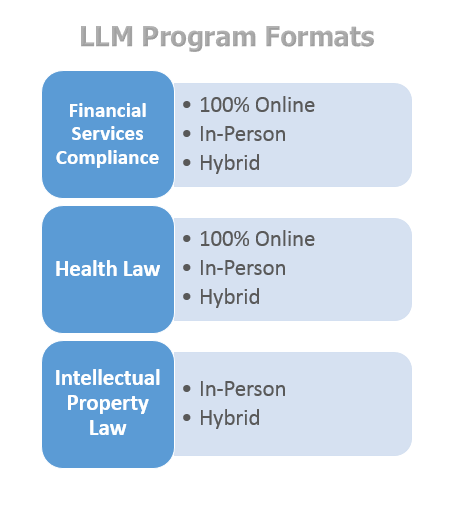

Seton Hall Law School offers a robust program in intellectual property (IP) law, reflecting strong demand for trained IP lawyers across various sectors. The LL.M. program targets practicing attorneys, those transitioning to IP law, government officials, and law graduates interested in academic careers. Admissions favor candidates with a J.D. from an ABA-approved school and ideally two to three years of practice experience.
Online LL.M. Application There is a strong, persistent demand for well- trained IP lawyers in law firms, in-house
legal departments, and government across a range of industries. Many of these firms,
industries and agencies have roots in New Jersey or Manhattan. Seton Hall Law School
has a long history of offering a wide array of IP courses, and created an IP concentration
for J.D. students in 2000. In 2008, the Law School received acquiescence from the
American Bar Association to establish an LL.M. degree in IP law. Seton Hall Law School
now provides training beyond the J.D. degree to select students, practitioners and
scholars in the growing and increasingly complex IP discipline.
There is a strong, persistent demand for well- trained IP lawyers in law firms, in-house
legal departments, and government across a range of industries. Many of these firms,
industries and agencies have roots in New Jersey or Manhattan. Seton Hall Law School
has a long history of offering a wide array of IP courses, and created an IP concentration
for J.D. students in 2000. In 2008, the Law School received acquiescence from the
American Bar Association to establish an LL.M. degree in IP law. Seton Hall Law School
now provides training beyond the J.D. degree to select students, practitioners and
scholars in the growing and increasingly complex IP discipline.
The Law School seeks to admit highly qualified candidates with a particular interest in IP law, including patent, trademark, copyright and technology law. All candidates must hold a J.D. degree from a law school that is approved by the Section of Legal Education of the American Bar Association or the foreign equivalent from a school of law.
We seek candidates for the LL.M. program from among attorneys already practicing IP law who wish to increase their exposure to and credentials in the field; attorneys who wish to transition from other practice areas to IP; government officials and regulators who specialize or wish to specialize in IP related issues; and law school graduates who are interested in teaching or other academic or research work relating to IP law. It is possible for students to combine courses from the Health and the IP LL.M. curricula.
In making its selections, the LL.M. admissions committee will consider depth of practice experience, quality of law school academic record, demonstrated interest in intellectual property law, and evidenced ability to do superior academic work. In most cases, we highly recommend that a candidate have at least two or three years of practice experience, beyond a judicial clerkship, before commencing the graduate program. The application process is rolling and applications for admission are accepted at any time.
LL.M. candidates must meet the following requirements:
LL.M. candidates may pursue one of five sub-specialties:
The graduate student’s faculty advisor will aid the student in selecting electives appropriate to the student's subspecialty. LL.M. students are expected to complete all course work within six years.
Required Courses | 9 Credits
Advanced Writing Requirement | 2 or 3 Credits
Students may satisfy their advanced writing requirement in an 3-credit in-person AWR seminar or in a 2-credit independent writing mentorship. In either case, the final paper must satisfy the law school's advanced writing requirement. Students who select the 2-credit option must register for the writing mentorship no later than six months prior to their expected date of graduation.
Core Courses | 12 Credits
* Students may take up to 2 elective courses from another concentration area in place of courses on this list.
View Complete Course Information in the University Catalogue →
The Seton Hall University Catalogue is the definitive source for up-to-date course
offerings and degree requirements.
LL.M. students must remain in good academic standing throughout the program. View the full academic policy.
Each student is given an exam number. In addition to using his or her exam number, each student should indicate on the front of his/her exam that he/she is an LL.M. candidate. This allows professors to exclude graduate students from the mandatory J.D. grading curve. No other reference to identity should be indicated on the exam. Every effort to maintain a student’s anonymity will be made; however, anonymity may sometimes be compromised due to the small number of graduate students enrolled in a given class.
Learn about our programs
On Demand
Graduate Program Webinars
For additional information, please contact
[email protected]
973-642-8747
or request information online.